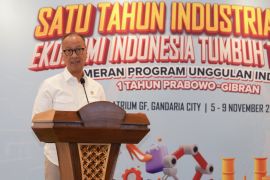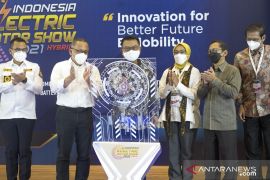"Environmentally friendly cars are widely available in the sales listing. 90 percent of consumers in the Asian region like hybrid cars," he added.
The global electric car market is projected to reach US$ 271.67 billion in 2019, with total sales pegged at 64.4 million units.
"In Asia, there will be many electric cars on the streets of major cities by the end of 2017. The government support for research and development, as well as tax incentives for electric car buyers will encourage electric car manufacturers in Asia, including Indonesia," Kolk said.
Meanwhile, the General Secretary of the Association of Indonesian Automotive Industries (GAIKINDO), Noegardjito, emphasized that the infrastructure for selling electric cars in Indonesia should be well developed and distributed in order to attract consumers.
"Forty companies incorporated in Gaikindo could easily produce electric cars for consumers in the country. But the problem is there is no charging station available," he said.
To produce an electric car, he said, there should be a commitment from the government. One of them would be to increase the number of supporting infrastructure for electric cars.
Earlier, a solar-powered electric car named Widya Wahana V made by the Technology Institute of Sepuluh November (Surabaya, East Java) had been tested over 1,200 kilometers from Jakarta to Bali on the 70th anniversary of the Independence of Indonesia.
Minister of Research and Higher Education Technology, M. Nasir, said electric car tested under the name of Tour de Java Bali had promoted the importance of the alternative-powered transport development, in particular solar power, for the community.
"The solar-powered car is a future technology that is being widely developed globally. Those in Silicon Valley, United States, are also developing this technology," he said.(*)
Editor: Heru Purwanto
Copyright © ANTARA 2015











